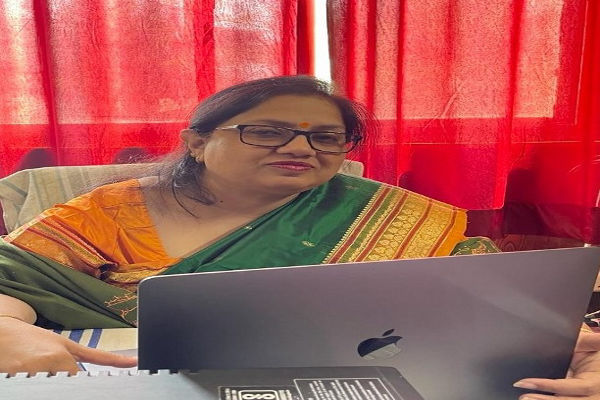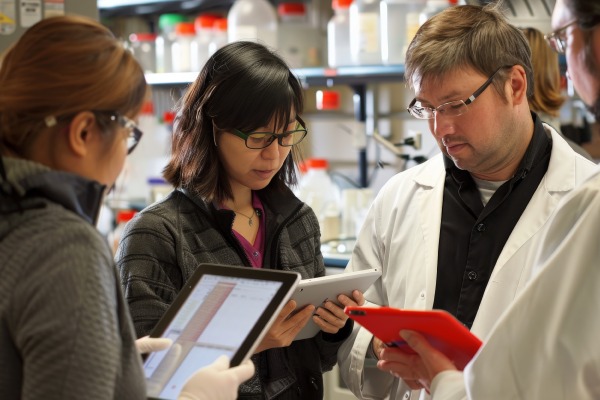
Pharm.D vs B.Pharm: Which Degree Leads to Higher Salaries in India?
Choosing between Pharm.D and B.Pharm is not just about academics. It is about where your paycheck lands after you graduate. Many pharmacy students often ask the same question—Which degree brings better income? In a country like India, where the pharma sector is booming, salary potential matters more than ever. Both degrees lead to rewarding careers, but the numbers tell different stories. This blog focuses purely on salary trends, income growth, and what each course can help you earn.
Let us help you decide which path is more rewarding. Shape your future with Dr. M.C. Saxena Group of Colleges, your trusted gateway to a high-paying pharmacy career since 2004.
Table of Content
- What You Invest and What You Get
- Entry-Level Salary Comparison
- Salary Growth After Experience
- Sector-Wise Income Opportunities
- Roles That Bring the Highest Pay
- Pharm D vs B Pharm Salary Reality
- Your Earning Journey Starts Here
- Frequently Asked Questions
What You Invest and What You Get
B.Pharm
-
Duration: 4 years
-
Average total fees: ₹3 to ₹6 lakhs
-
Job-ready in less time
Pharm.D
- Duration: 6 years
- Average total fees: ₹6 to ₹10 lakhs
- Includes 1-year hospital internship
Pharm.D requires more time and investment. But does the salary make up for it? Let’s look at what you earn at the start and how it grows.
Entry-Level Salary Comparison
B.Pharm Salary (Fresher Level)
- Average: ₹3.2 to ₹4.8 LPA
- Common roles: Medical Representative, Quality Analyst, Production Assistant
- Limited to non-clinical roles in most cases
Pharm.D Salary (Fresher Level)
- Average: ₹4.5 to ₹6.2 LPA
- Common roles: Clinical Pharmacist, Drug Safety Officer, Healthcare Analyst
- Clinical training during internship adds value
So if you are looking strictly at starting pay, Pharm.D wins by a good margin. Employers pay more for clinical exposure and patient-facing skills.
Salary Growth After Experience
B.Pharm Growth After 3-5 Years
- Mid-career salary: ₹6 to ₹8.5 LPA
- Senior roles may reach ₹10 LPA in MNCs
- Additional qualifications like M.Pharm or MBA boost earnings
Pharm.D Growth After 3-5 Years
- Mid-career salary: ₹8 to ₹12 LPA
- Positions in pharmacovigilance, clinical trials, and hospital leadership offer better pay
- Clinical expertise opens global job doors
Pharm.D holders typically move faster into higher salary brackets. Their qualifications allow them to negotiate better roles in hospitals, CROs, and multinational health firms.
Sector-Wise Income Opportunities
B.Pharm High Paying Sectors
- Pharmaceutical Sales and Marketing: ₹5 to ₹8 LPA
- Regulatory Affairs: ₹6 to ₹10 LPA
- Production and Manufacturing: ₹4.5 to ₹7.5 LPA
Pharm.D High Paying Sectors
- Clinical Research: ₹8 to ₹14 LPA
- Hospital Pharmacy (Private and International): ₹6 to ₹10 LPA
- Drug Safety and Pharmacovigilance: ₹9 to ₹13 LPA
The most noticeable salary gaps appear in clinical roles. Companies are willing to pay more for Pharm.D graduates due to their hands-on training in hospitals and deep therapeutic knowledge.
Roles That Bring the Highest Pay
Here’s a list of top-paying roles from both programs:
Top Roles After B.Pharm
- Regulatory Affairs Manager: ₹9 to ₹12 LPA
- Formulation Scientist: ₹7 to ₹10 LPA
- Production Manager: ₹6.5 to ₹9 LPA
Top Roles After Pharm.D
-
Clinical Research Manager: ₹12 to ₹18 LPA
-
Pharmacovigilance Expert: ₹10 to ₹15 LPA
- Medical Affairs Lead: ₹9 to ₹14 LPA
It is clear that Pharm.D opens access to jobs with higher salary ceilings. Especially in patient-focused and research-based industries, the pay jump is significant.
Pharm D vs B Pharm Salary Reality
In simple terms, if your primary focus is earning more money in the long run, Pharm.D beats B.Pharm in most salary comparisons.
Let’s break it down:
- Higher starting salary
- Better hike with experience
- Access to global and hospital-based roles
- Preferred by clinical recruiters
On the other hand, B.Pharm is more affordable and gets you into the industry faster. But without further studies, salary growth can be slow.
Pharm D vs B Pharm is not only about what you study, it is about what you earn. And when it comes to paychecks, Pharm.D has a stronger edge in today’s market.
Your Earning Journey Starts Here
Now that you know the salary facts, are you ready to choose the course that suits your career goals? Whether you aim for immediate income or long-term financial growth, your academic foundation plays a key role in shaping that journey.
Step into a rewarding future with Dr. M.C. Saxena Group of Colleges, where pharmacy education meets industry standards.
Start your career at the college trusted by thousands to turn talent into success. Apply now and choose the degree that pays you back.
- Email: atmcscet@rediffmail.com
- Call Now to Take Admission: +91 9936052233
Frequently Asked Questions
Q1. Who earns more in India, a Pharm.D or B.Pharm graduate?
A1. On average, Pharm.D graduates earn more than B.Pharm graduates. Their clinical skills and hospital training often lead to higher-paying roles in research and patient care.
Q2. Can a B.Pharm graduate reach the same salary level as a Pharm.D graduate?
A2. Yes, but it may take longer. B.Pharm graduates often need to pursue higher studies like M.Pharm or an MBA to match the earnings of experienced Pharm.D professionals.
Q3. Do government jobs pay differently for B.Pharm and Pharm.D holders?
A3. No. In most government roles like drug inspectors or pharmacists, salaries are based on pay grades, not the degree type. However, Pharm.D may qualify for advanced roles in hospital settings.
Q4. Does Pharm.D offer better salary options abroad compared to B.Pharm?
A4. Yes. Pharm.D is widely accepted in countries like the USA, Canada, and Gulf nations, where it often leads to licensing and better-paying pharmacy jobs.





































































